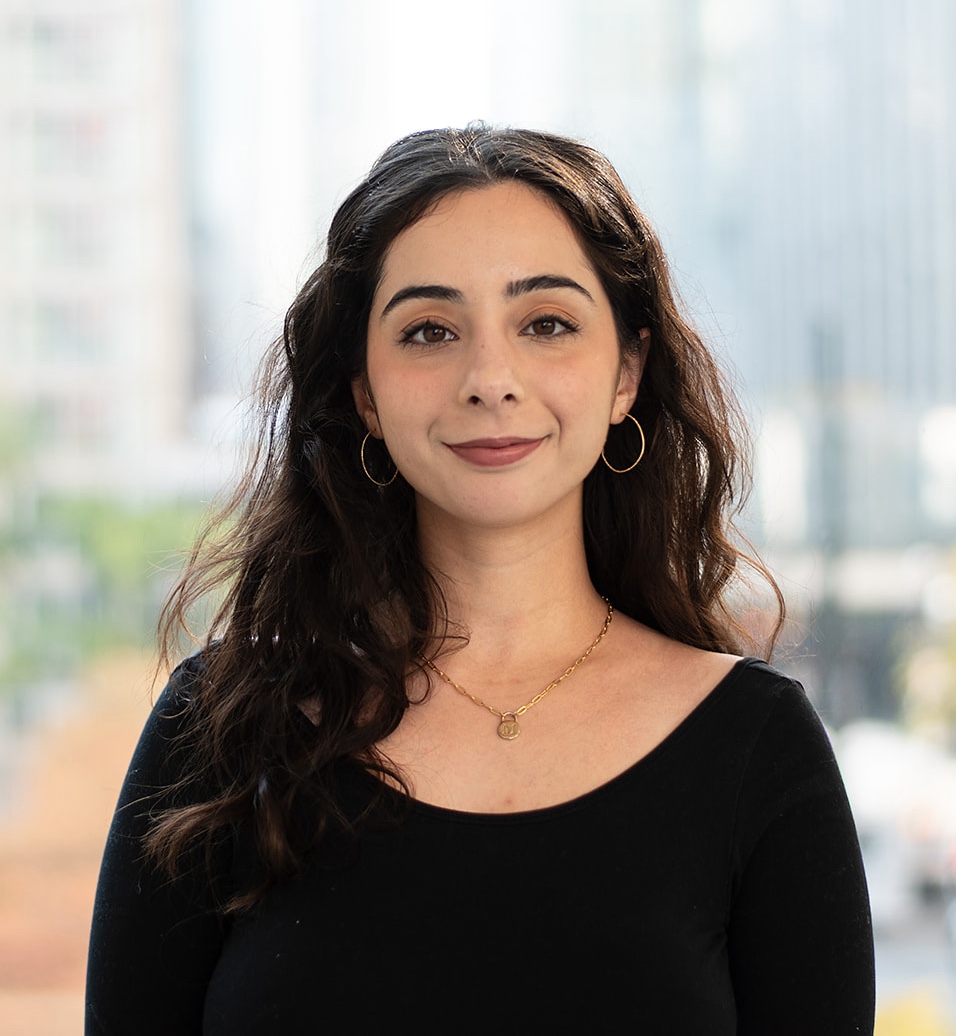CRS Perspectives Spotlight on Mariam Charles
Embrace the fact that as you explore and develop within your career, you are bound to make mistakes, face rejections, and be uncomfortable.
Mariam Charles
MS-RSM Class of 2024
Mariam Charles is a second year MS-RSM student, conducting research in the Duncan Lab. She recently successfully defended her thesis project, "“Dynamics of the primordial follicle microenvironment across the time course of ovulation."

What brought you to join the CRS community, and what is your current position?
When I was around 7 years old, my parents were under the care of an REI, so I became aware of the field of reproductive medicine at a young age. Since then, I was always fascinated by reproductive health. Through an undergraduate class, I was exposed to reproductive science research while we learned about the consequences of BPA on reproductive health outcomes. I worked alongside an REI that conducted clinical research about Müllerian anomalies and I loved every aspect of it. From making clinical observations, to formulating questions, and then collecting and analyzing data, I knew I wanted to be immersed in this field. I joined CRS to expand my skillset as a reproductive science and medicine researcher. As a member of CRS, I am a second-year MS-RSM student!
Could you describe your research?
We are conducting research to determine how primordial follicle activation is modulated leading up and following ovulation due to changes within the ovarian and local primordial follicle environment.
What do you hope to accomplish throughout your reproductive science career?
Throughout my reproductive science career, I want to investigate how the impacts of daily influences like diet, circadian rhythms, stress, and disease, etc., on gamete quality, reproductive outcomes, maternal and neonatal health. Ultimately, my goal is to ensure that any findings are widely accessible and easily understandable. I want to empower patients to make informed decisions about their health, as they consider financial, religious, and social factors, in a manner that aligns with their comfort and autonomy.
What are important aspects of your heritage or identity that has shaped you and your career path?
As the child of refugees who immigrated to the US in the mid-90s, my upbringing was marked by resilience and perseverance. My parents, and I, a first-generation, Iraqi-Chaldean American, have simultaneously faced trials and tribulations as we navigated the various systems within this country. Our shared experiences has taught me the value of persistence; if something doesn’t work, there is always another way. While we often thought that our identities created barriers from accessing certain spaces, I learned to advocate and create spaces for myself and others like me, and provide resources to those on a similar path.
What would you like to see in terms of spreading knowledge or involvement in heritage or diversity awareness?
With more diversity, equity, and inclusion initiatives, I hope people become inspired and empowered to share their heritage and backgrounds. I also hope that institutions, organizations, societies, etc., provide a platform for and support individuals that want to share their diverse experiences. Through this, we can achieve genuine representation and foster true diversity.
What is one piece of advice you would give to young scientists, like yourself, starting in their journey in reproductive science and medicine?
Embrace the fact that as you explore and develop within your career, you are bound to make mistakes, face rejections, and be uncomfortable. Being taken out of your comfort zone helps you grow. With that, cultivate your support system! Your support system will always be cheering you on whether your experiment got messed up, you didn’t get a grant or scholarship, or you’re just having a bad day. It always takes a village!